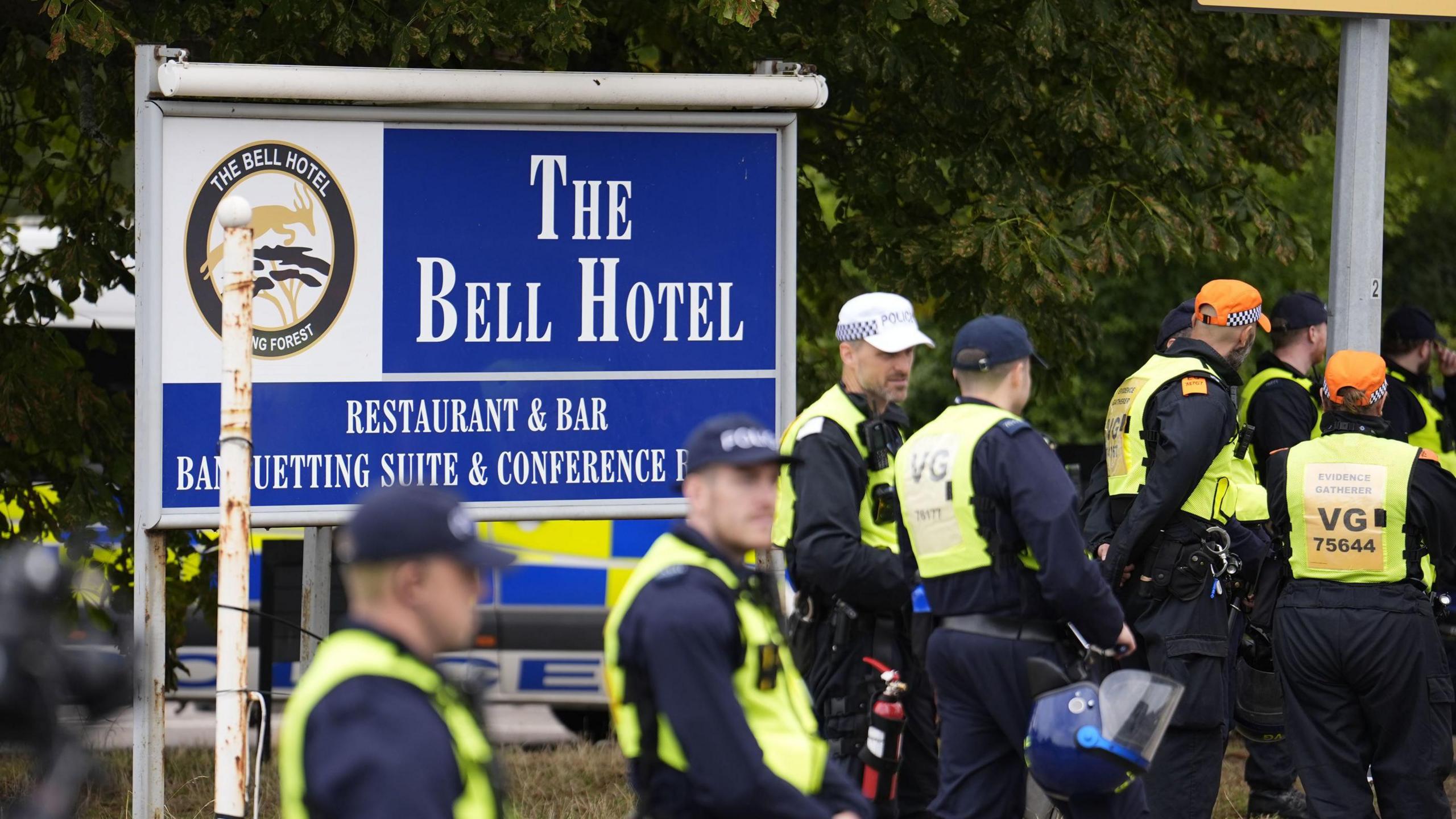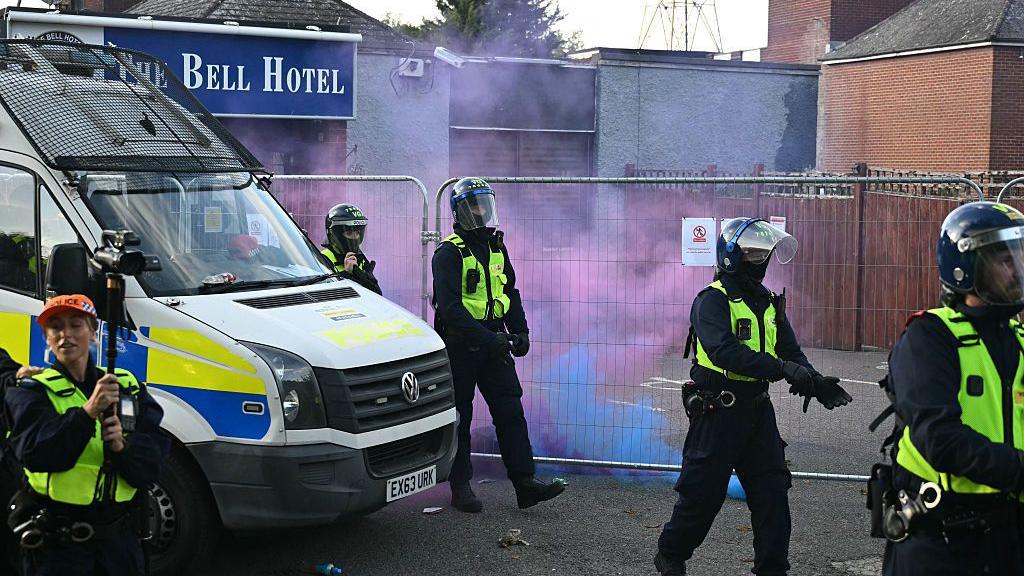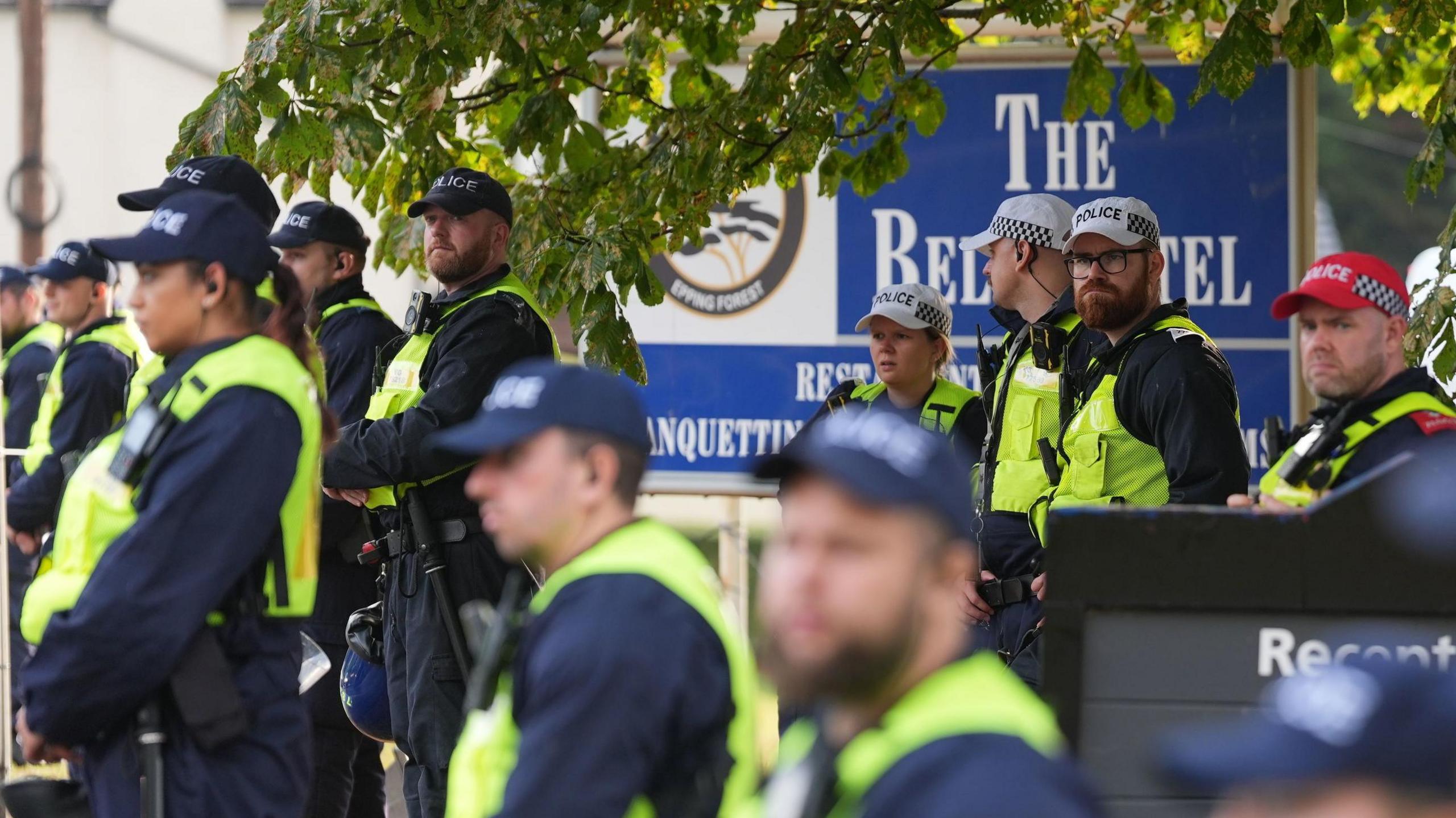Asylum hotel a 'feeding ground for unrest'

Epping Forest District Council wants The Bell Hotel to be blocked from housing asylum seekers
- Published
A hotel used by asylum seekers in Essex has become a "feeding ground for unrest and protest", the High Court has been told.
Epping Forest District Council is seeking to block migrants lodging at The Bell Hotel in Epping, which was the scene of vociferous protests over the summer.
Lawyers for the authority accused Somani Hotels of "sidestepping" planning laws due to "the lure of a trove of government-funded profits".
The Home Office, which intervened in the case, argued the closure of asylum hotels must be "structured" and gradual.
The Conservative-led council wants a permanent injunction, while Somani Hotels and the Home Office have opposed the claim.
A judge previously awarded the council a temporary injunction prior to the latest hearing, but this was later overturned.

The Bell Hotel was the focal point of intense protests and counter-protests over the summer, some turning violent
Opening the council's case, Philip Coppel KC said the hotel was breaching planning controls in a "serious, flagrant and continuing" way.
He said the owner had "flagrantly" changed its use of the hotel, "without bothering to apply" for planning permission.
Mr Coppel argued this change was having a "significant adverse impact" on people living, working and visiting the town.
"A person wanting to stay in Epping cannot book a room there. A person cannot even visit there," he said in written submissions to the hearing at the Royal Courts of Justice in central London.
"A hotel contributes to the amenity of the vicinity - those living and working there.
"It does not attract weekly protests and draw in unlawful activity."
Charges faced by migrant hotel protester dropped
- Published15 October
The Bell Hotel became the focus of several protests and counter-protests in the summer, some of which turned violent, after an asylum seeker housed there was charged with two sexual assaults.
Hadush Kebatu, an Ethiopian national who arrived in the UK on a small boat days before the incident, was jailed for a year in September.
The hotel has been housing asylum seekers in spells since October 2022.

Lawyers for Somani Hotels said the venue had been in financial decline "for many years"
Mr Coppel accused Home Secretary Shabana Mahmood of allowing her judgement to be clouded by the need to house those migrants.
But James Strachan KC, for the Home Office, said block booking rooms "does not change its use as a hotel".
He argued it was not in the public interest to grant an injunction, when considering "the backdrop of multiple other local authorities seeking similar" rulings.
Representing Somani Hotels, Jenny Wigley KC said the business had been in financial decline "for many years".
She added there had been no changes to the building's structure and the only external changes were to install security fencing in response to the protests.
The hearing, before Mr Justice Mould, is due to conclude on Friday.
Get in touch
Do you have a story suggestion for Essex?
Follow Essex news on BBC Sounds, Facebook, external, Instagram, external and X, external.
- Published9 September

- Published4 September

- Published29 August
